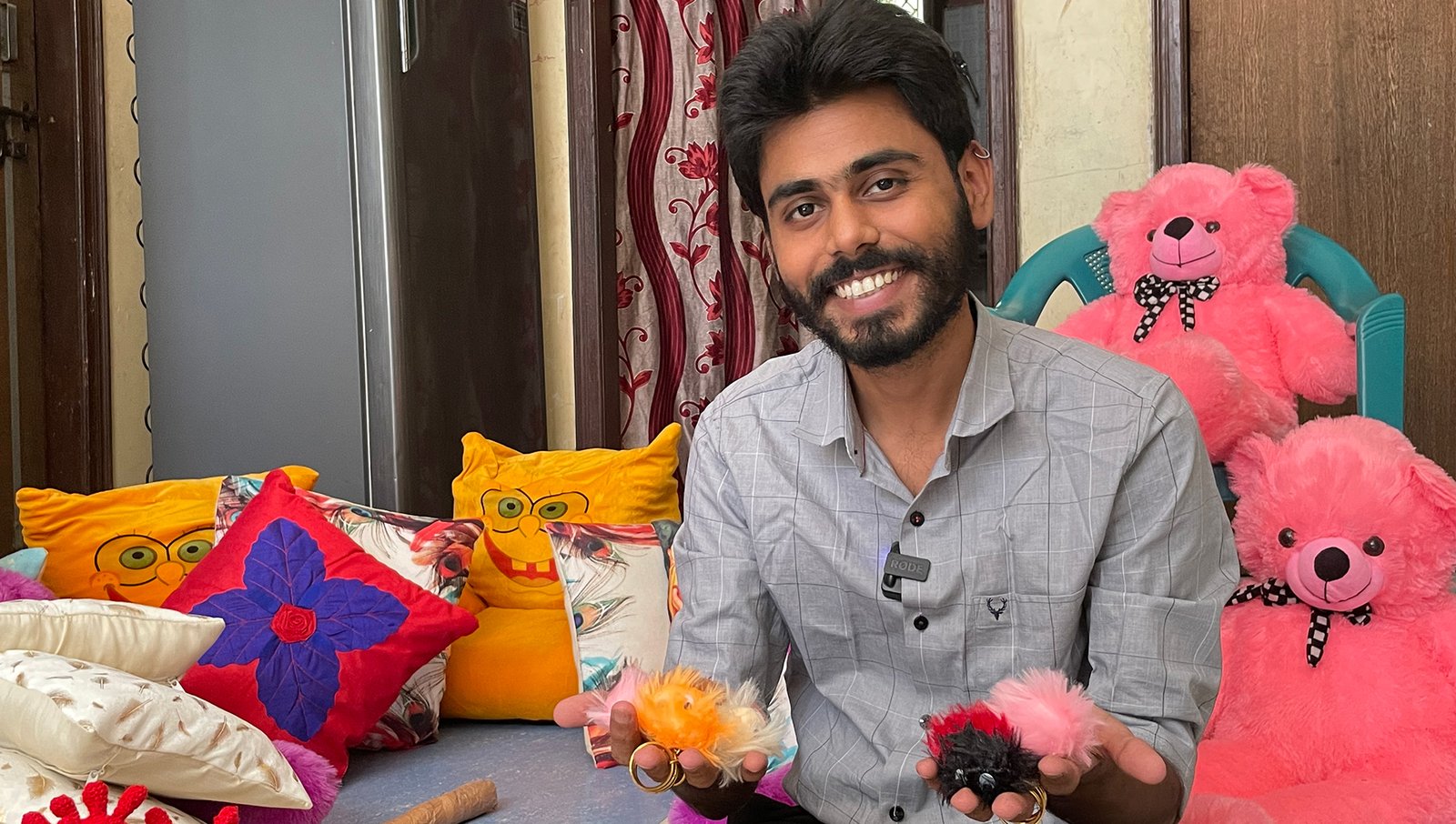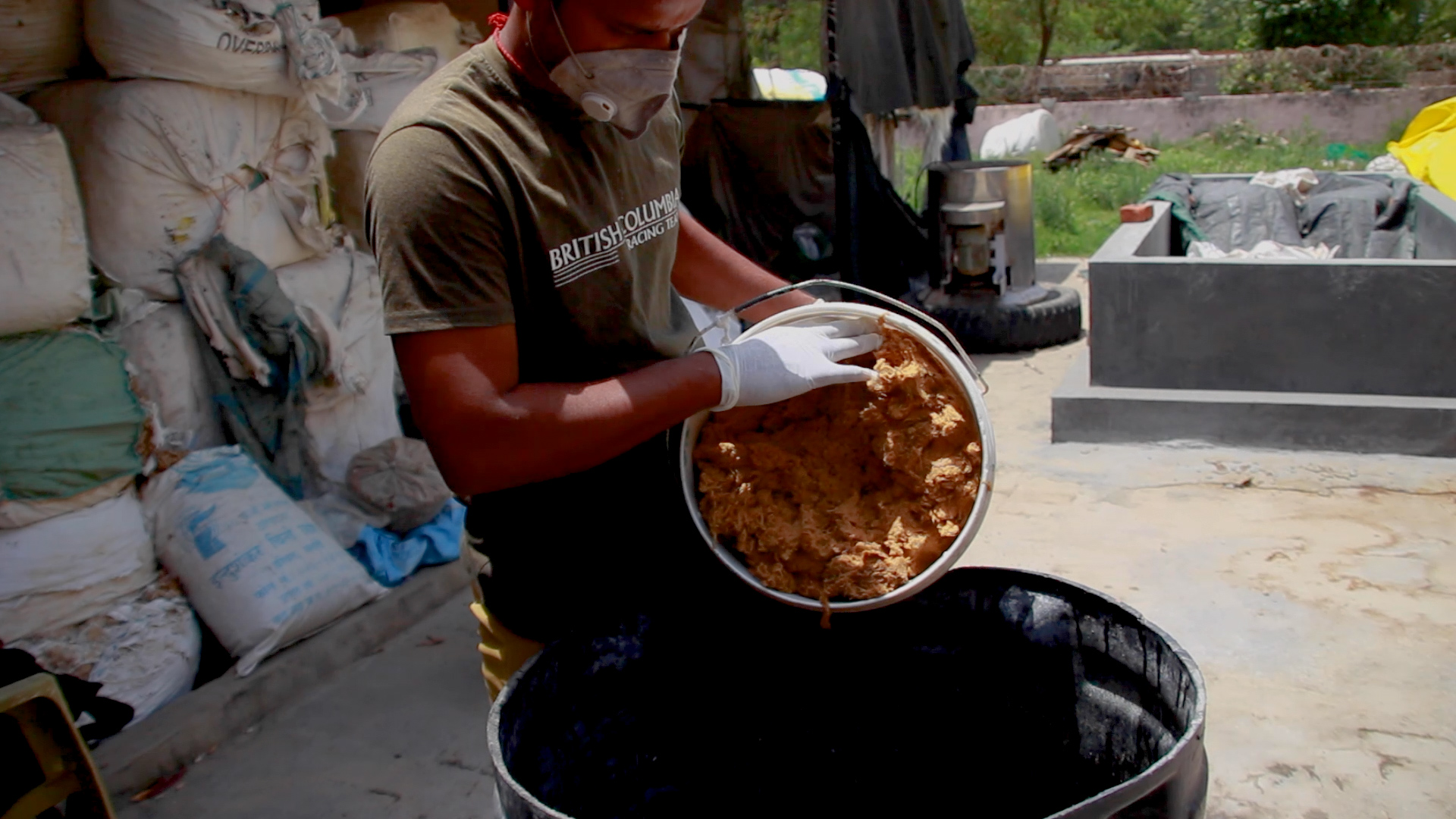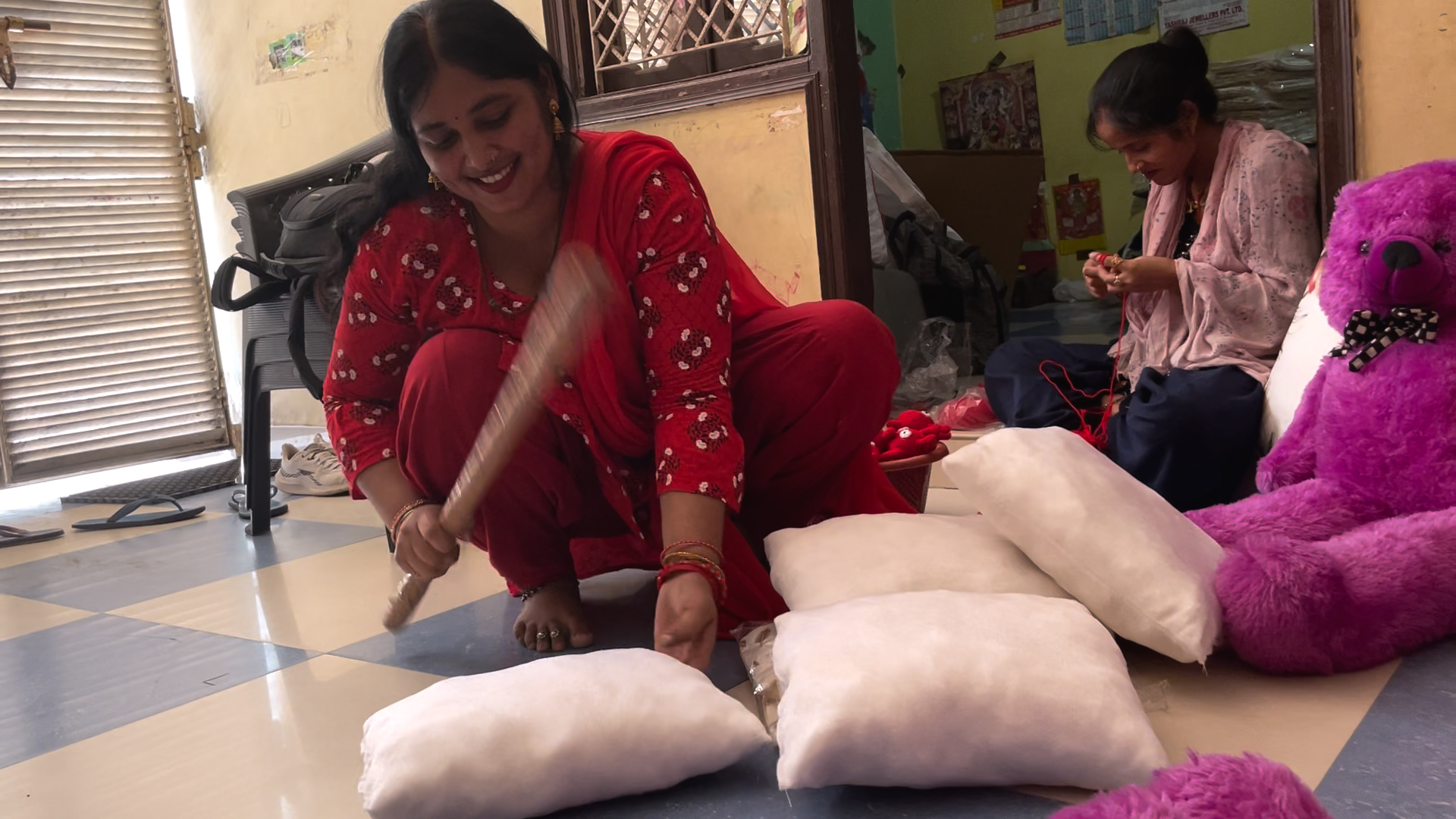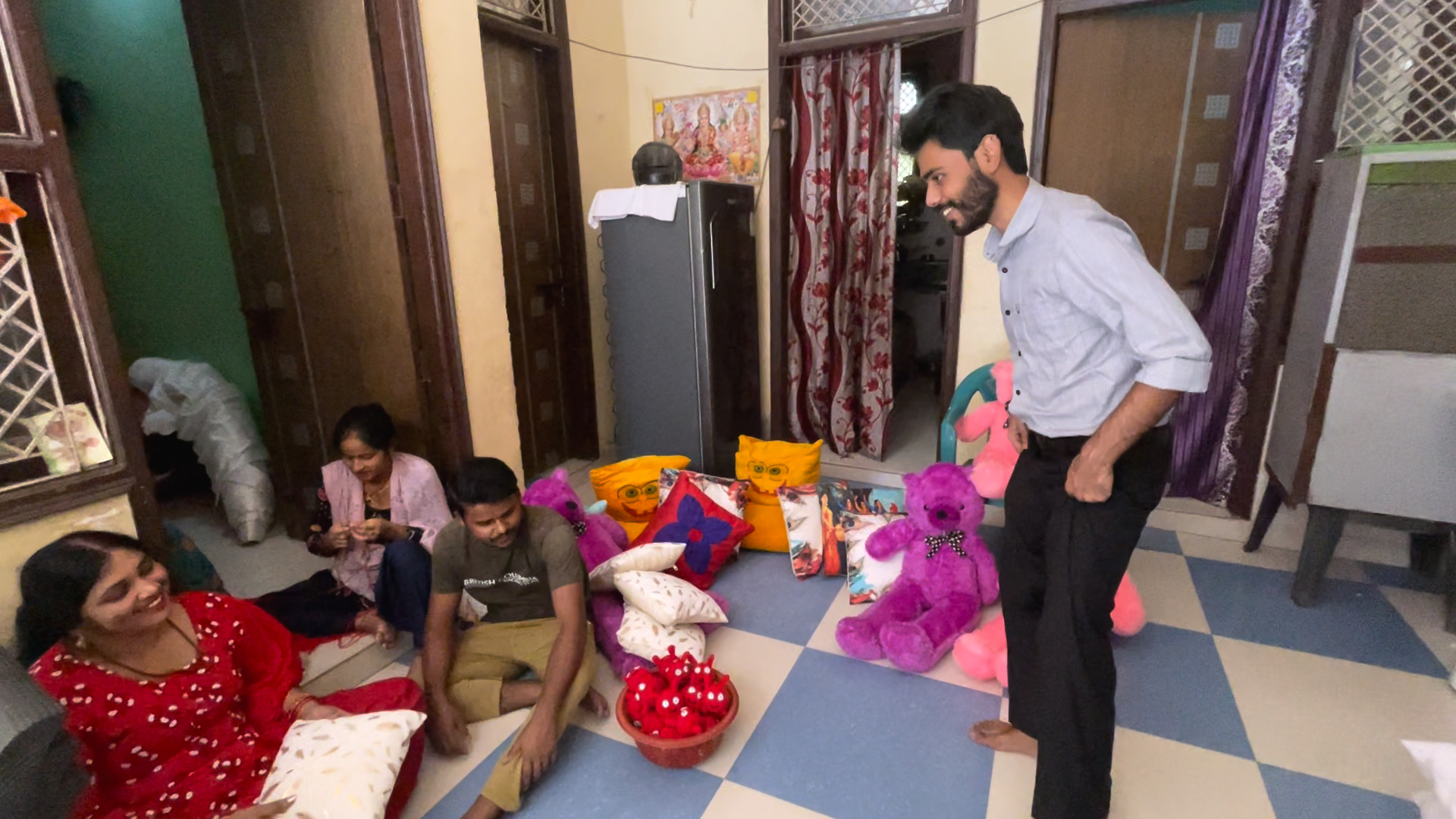NANGLI (NOIDA): While we are very much aware of the dangers of cigarette smoke, very few of us are aware of the danger posed by the toxic butts of the light.
“I am a non-smoker, I assume that cigarette buds are made of cotton and it will degrade itself in some time. But I learnt that it is not actually cotton. It is plastic and fibre and this takes around 10 to 12 years to decompose. It is also toxic as it contains cellulose acetate,” 27-year-old Naman Gupta told The New Indian.
It is this thought that led Gupta to CODE Efforts – which stands for Collective Effort to Conserve Our Depleting Environment.
Working on the 3Ps – Procure, Process, and Produce – CODE Effort collects and recycles this unsuspecting harmful waste into something more useful like compost for plants and items such as key chains, car dashboard hanging products, cushions and soft toys. Recently they had also developed fully handmade recycled paper.
“We ensure that no part of cigarette butt goes into waste and with the help of aerobic composting, which is the decomposition of organic matter using microorganisms that require oxygen and that didn’t pollute the soil or groundwater in the process, we convert leftover tobacco into compost powder,” Gupta said.
While the compost powder is sold in the nurseries, the cigarette paper is used to make mosquito repellent.
“We are self-funded and we are investing our own time and money in this venture. I am proud to say that our customers are our valuable investors because there are a lot of efforts that we put into this concept to become reality and to make a beautiful product from this toxic waste,” Gupta added. “Our end products give us 65 to 70 per cent gross margin and net revenue-wise we earn 20 to 22 per cent,” he added.
Gupta’s dream project took shape in 2018 in the Nangli village of Noida. “We started with 10-20 g of cigarette butts and now we are handling tons of butts,” the Commerce Post Graduate said.
“We are not using any machine for the process of filtering cigarette butts. This is done manually by women from the village,” Gupta said.
The collected butts are then processed into three parts – paper, leftover tobacco and the filter (cellulose acetate).
“We use two types of chemicals. The first chemical is used for detoxification and removes chemicals such as tar and sulphur from butts. The second chemical is used to enhance the colour,” Gupta said.
So how does he collect so many butts? Gupta explained, “We have a team of more than 2,000 rag pickers and volunteers from across the country who collect the butts. The majority of supplies come from Karnataka, Maharashtra, Tamil Nadu and MP to name a few.”
But it is not the ragpickers alone that Gupta is dependent on. “We also provide collection services for the commercial establishments that permit smoking such as corporates, lounges and cafes. We called his service as VBins (Value Bins) and at present, it is only available in Delhi, Gurgaon and Noida only,” he said.
After recycling the butts, the recycled material is given to a team of more than 100 women who manufacture the final products. “It helps the women in the village augment their family income with their salaries,” Gupta said.
Ram, who hails from Samastipur in Bihar and who has been working with CODE Efforts for the past three years, said he is happy with the work he does.
“We have to be very careful with the use of chemicals to clean the toxic butts. But Naman bhai (Naman Gupta) has taught us well and we are happy with the kind of work we are doing,” he said.
“Currently, we are producing more than 10 different categories of products which includes key chains, car dashboard hanging products, cushions, soft toys etc,” Gupta said, adding, “Recently we have started developing fully handmade recycled paper.”
Interestingly, Gupta’s recycled paper comes with a flowery twist.
“To ensure that we don’t have any carbon footprints, we put basil and marigold seeds in it. One can grow these plants from paper. It is an anti-bacterial paper and the seeds have a life of two years,” Gupta claimed. “To give it a personal touch we are also exploring opportunities to add seeds of a customer’s choice in the paper,” he added.
“I called myself an entrepreneur with a large vision and that this is just the beginning of a big step for a social cause,” Gupta signed off.














